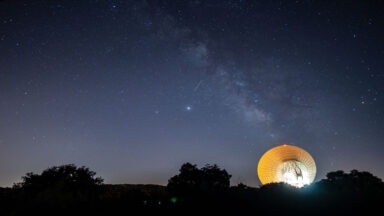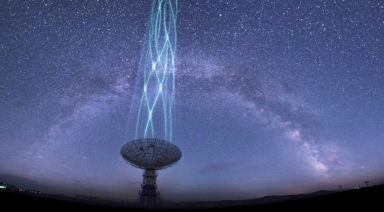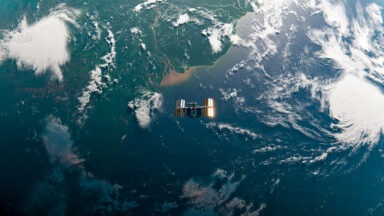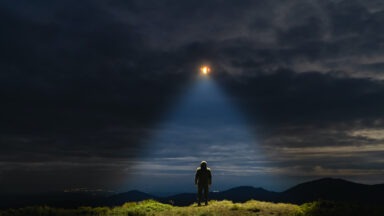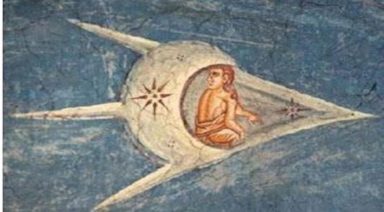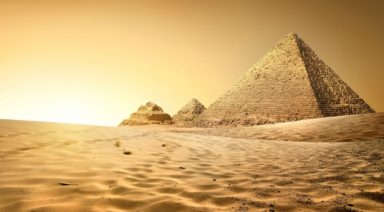Michael Salla’s Exopolitics: The Political Implication of Aliens

In academia there’s very little room to stray from your field of specialty, let alone the areas of study deemed worthwhile by the ivory tower. And no one is more familiar with this stringency than Dr. Michael Salla, a man with an impressive resume that culminated in an associate professorship teaching international politics at American University.
But about five years in to his teaching, Salla stumbled upon a deep rabbit hole of overwhelming evidence in the world of ufology and became quickly ostracized for expressing interest to colleagues. Undeterred, he continued his research independently, pioneering his own brand of government study he dubbed ‘Exopolitics.’
Today Salla enjoys notoriety as one of the most recognized names in his field, continuing to refine exopolitics’ definition as the political implications the existence of extraterrestrial life has on Earthly politics.
Salla’s Expolitics Institute
Today, when he’s not speaking at conferences, penning a new book, or appearing on Gaia programming, Salla is updating his website exopolitics.com and running the Exopolitics Institute, a non-profit educational organization in Hawaii, where he resides. The institute is chaired by another recurrent Gaia guest Paola Harris, as well as extraterrestrial investigator Neil Gould. Listed among its advisory board one finds a slew of recognizable names in the world of ufology, including Jaime Maussan, Freddy Silva, and James Gilliland.
Salla’s Exopolitics Institute offers a number of programs for those seeking to learn more about the world of ufology and extraterrestrial life. Students have several options ranging from a certification course to a comprehensive expolitics diploma.

Salla notes that exopolitics is significant whether you believe in the extraterrestrial hypothesis or not. For hardcore skeptics, many can accept the premise that it’s only a matter of a time until we discover extraterrestrial life in the cosmos, and when we do, there will inevitably be political implications. And for those who believe there is already an extraterrestrial presence either covered-up or within plain sight, there are obvious implications as well.
That’s why the Expolitics Institute has created its own UFO news programs to gain public attention and promote debate on the topic. The goal of these programs is to bring awareness to…
“an interdisciplinary scientific field, with its roots in the political sciences, that focuses on research, education and public policy with regard to the actors, institutions and processes, associated with extraterrestrial life, as well as wide range of implications this entails through public advocacy and newly emerging paradigms.”
In addition to these channels, Salla et al. have even created the exopolitical version of Wikipedia, known as Exopaedia – an exhaustive taxonomy of extraterrestrial races, terms and their historical context. They really did their homework here!
The Hawaii Star Visitor Sanctuary Program
Though Australian by birth, Salla has made the island state of Hawaii his home. But he also realized that much like his home country, Hawaii was once inhabited by an indigenous people before the imperialistic powers that be, fomented a coup and annexed the island nation as a state of the U.S.
Prior to U.S. occupation, the Kingdom of Hawaii proclaimed itself a neutral nation under King Kamehameha III, in 1854. More than a century later, the U.S. government issued a statement of apology to Hawaii in 1993 for its imperialist overreach, recognizing Hawaiians’ sovereignty as a people. Using this precedent, Salla helped a group of representatives in the reinstated Hawaiian Kingdom establish the Hawaii Star Visitor Sanctuary – an area for benevolent extraterrestrial life forms to land and be greeted peacefully by ambassadors, if and when they arrive.
The impetus for such a location, aside from Salla’s work, stemmed from the Hawaiian traditional belief – oddly similar to many other disparate native groups – that their people were brought to Earth from the Pleiades star system, also known as the Seven Sisters. The official document proclaiming the sanctuary’s establishment was signed May 28, 2014.
The sanctuary is located in the Kalapan region on the Big Island of Hawaii and is regularly open to visitors.
For more insight into Dr. Michael Salla’s work check out this episode of Cosmic Disclosure:
NASA Announces How It Will Report ET Contact
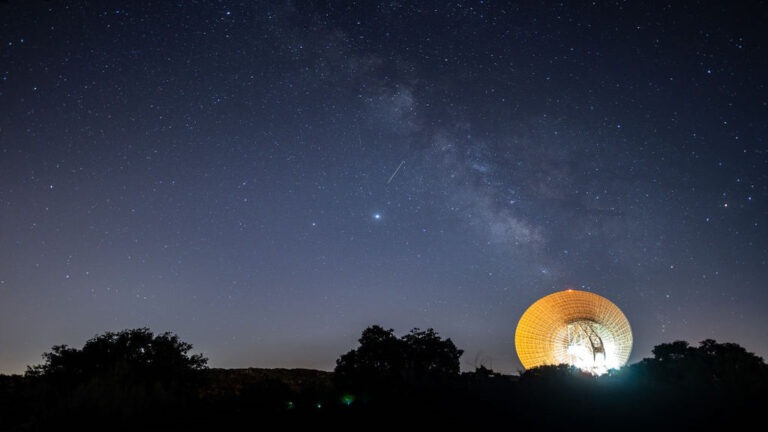
NASA Chief Bill Nelson says looking for extraterrestrial life is part of NASA’s mission, as its top scientists call for a detailed system for classifying ET life.
In a huge departure from the US government’s historical treatment of UFOs and possible ET life, NASA administrator Bill Nelson said in an interview with University of Virginia professor Larry Sabato, “[W]ho am I to say that planet Earth is the only location of a life form that is civilized and organized like ours?”
Meanwhile, top NASA scientists are calling for a scaled system for reporting any evidence of extraterrestrial life modeled after NASA’s progressive scale of Technological Readiness Level already in use for new spaceflight equipment.
Instead of the binary “life or no life” way of looking at off-planet discoveries, these scientists are suggesting a more nuanced way of reporting what they find. Cheryl Costa, retired journalist, UFO statistician, and author of the UFO Sightings Desk Reference, thinks it’s about time.
“I think it’s long overdue, they’ve been talking about this stuff for years. They know that there have been unidentified things in our skies since biblical times,” Costa said. “The fact that they’re finally owning up to the idea of classifying alien life. Their scale is going to have to run the range of organic molecules all the way up to sentient beings, so it needs to be a pretty big scale, and it’s nice to start seeing bonified scientists looking at this issue and saying ‘OK, we need to do this.'”
And what about NASA Administrator Bill Nelson’s comments?
“I think it’s refreshing that the NASA chief came out and said ‘Yeah, maybe’ on the UFOs and off-world life. I think they still know more than they’re telling us. I’m happy NASA is coming out with this stuff, I think they’re trying to feed it to us a little spoonful at a time. They don’t want to scare the populace,” Costa said.


